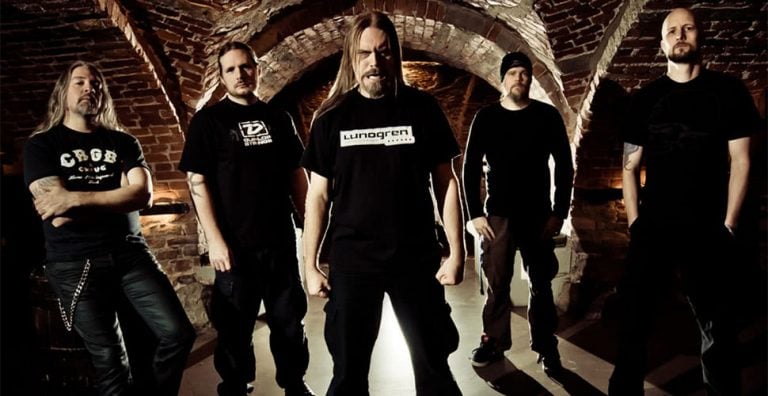In the world of metal, the djent genre is arguably one of the most looked-down on, with detractors criticising both its name and validity. Now, djent pioneers Meshuggah have apologised for their role in its creation.
Over the last couple of decades, the world of progressive metal music seemed to gradually give birth to a brand new genre of music. Given the onomatopoeic name ‘djent’, thanks to the crunchy, staccato sound that musicians in the genre create, Swedish guitarist Fredrik Thordendal of Meshuggah has long been credited with not only pioneering, but also popularising the genre.
However, as the years have gone by, djent has also given rise to a rather silly war between pedantic music fans. While some claim that djent doesn’t actually exist, and that it’s just a name given to similar-sounding songs within progressive metal, others claim that not only is it its own genre, but that it’s a superior one at that.

Now, Meshuggah have apologised for their role in the creation of djent, explaining to Rauta (via Blabbermouth) that the whole thing was based on a drunken misunderstanding.
“First of all, we’re very sorry for creating that genre; we didn’t intend to — our bad. No, but it’s actually – I think it’s a misconception, that djent thing. I think it’s kind of hilarious,” explained rhythm guitarist Mårten Hagström.
“It’s our lead guitar player, Fredrik [Thordendal], being drunk back in the day, talking to one of our old-school fans, trying to explain what type of guitar tone we were always trying to get, and he was desperately trying to say, ‘We want that ‘dj_,’ ‘dj_,’ ‘dj_,’ ‘dj_.'”
Love Music?
Get your daily dose of metal, rock, indie, pop, and everything else in between.
“And that guy was, like, ‘What’s he saying? Is that a Swedish word? Must be. Sounds like dj_, maybe ‘djent’? Maybe something like that.’ And that’s where it comes from. A drunk misunderstanding, as always with Meshuggah.”
When asked in regards to what sort of music that Meshuggah do play, Hagström described their sound as “heavy, experimental music”.
“I don’t care if it’s progressive or not — it’s heavy,” he explained. “Either it gets into that math-metal, djent subgenre type of thing, that’s for other people to decide. We play aggressive, experimental music, and that’s basically it.”
Check out Meshuggah’s ‘Bleed’:


































